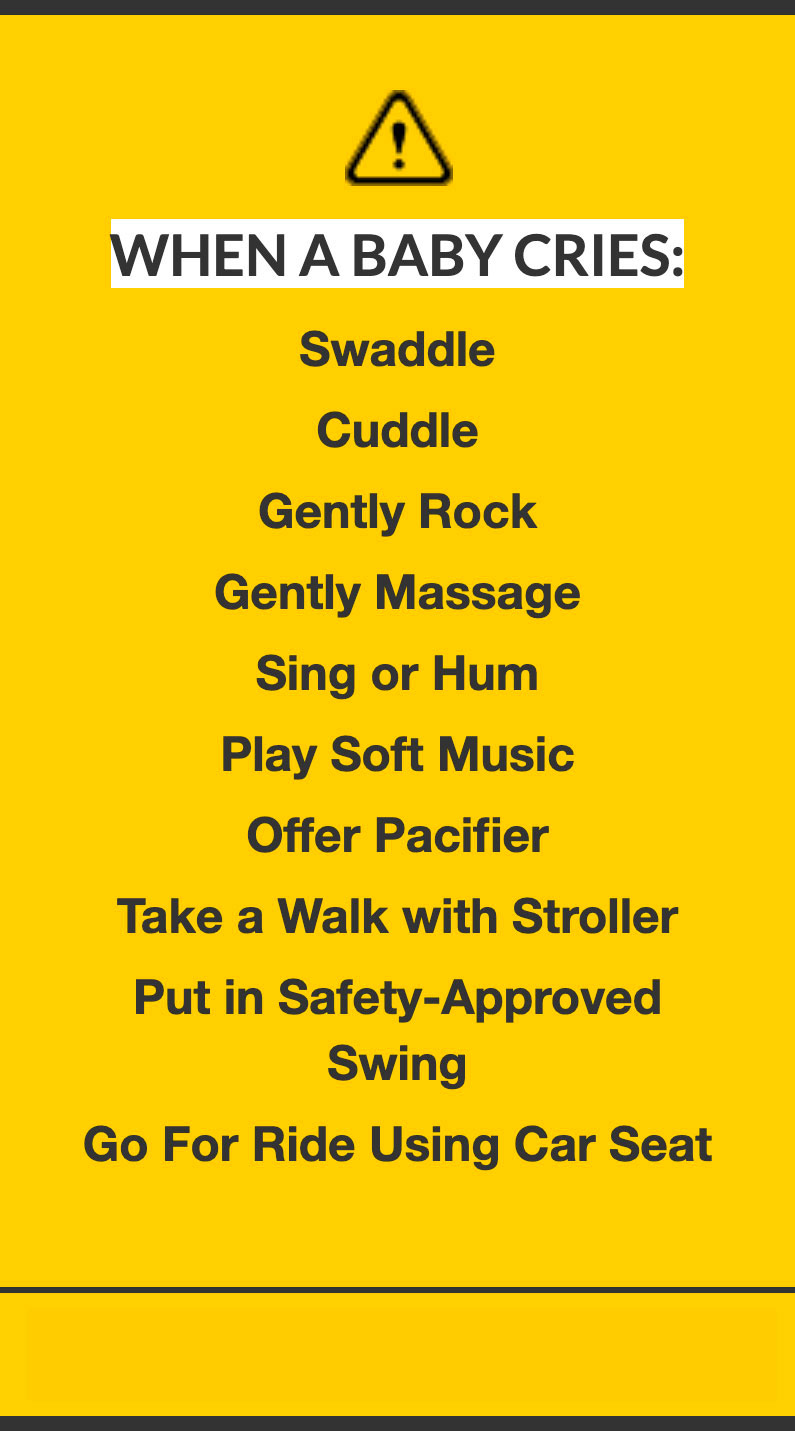
Shaking infants—even once—
can kill or injure them for life
For a split second, a parent or caregiver loses their patience when they can’t cope with a crying baby, and the consequences last forever. Shaking an infant or young child – even once – can be fatal.
Each year, several children in the Tampa Bay area die from being shaken violently, or suffer another type of abusive head trauma at the hands of a parent or caregiver. Tragically, it’s a 100% preventable death.
Most parents think they would never do anything to harm their baby, but most often, parents are responsible for causing injury or death from shaking a baby. The parent or caregiver does not mean to cause abusive head trauma, but they lack the knowledge or skills to cope with a stressful situation.
One shake can have lifelong consequences.
Crying is how babies communicate. It may mean a variety of things, including hunger, teething, a dirty diaper or discomfort from temperature or sickness. A baby will also cry when overtired.
Often, a parent or caregiver who is stressed, exhausted or frustrated shakes a baby that is crying and can’t be soothed. Attempt to soothe your baby, but know that sometimes a baby can’t be soothed.

Prevent abusive head trauma
Take these steps to keep kids safe:
- Take a time out. It’s okay to put the child safely on their back in the crib and step out of the room to calm down. Stepping away reduces the chance of stress leading to a dangerous situation. Check on the child every few minutes to ensure they’re still safe.
- Make time for self-care. Make time for yourself by getting a trusted caregiver to watch your baby. Explain to the caregiver that crying is normal, and if they need a break, it’s ok to put the baby down safely for a few moments.
- Check caregiver’s background. A key to preventing more deaths from abusive head trauma is to check out the background and childcare skills of every caregiver.
- Talk about it. Have frank conversations with caregivers, including spouses and immediate family members, about the dangers of head trauma. Watch for signs that show a caregiver may not be prepared to care for a child, such as if they are easily angered or stressed, or seem inattentive. Don’t assume that a caregiver who loves the parent will feel the same way toward the child.
- Seek support. Call on community resources for support. Dial 2-1-1 for immediate access to expert resources who can help you with your feelings of stress, anger or loneliness.
Caregivers, babysitters, relatives or anyone else caring for a baby need to know the risks of abusive head trauma and take steps to keep a child safe.